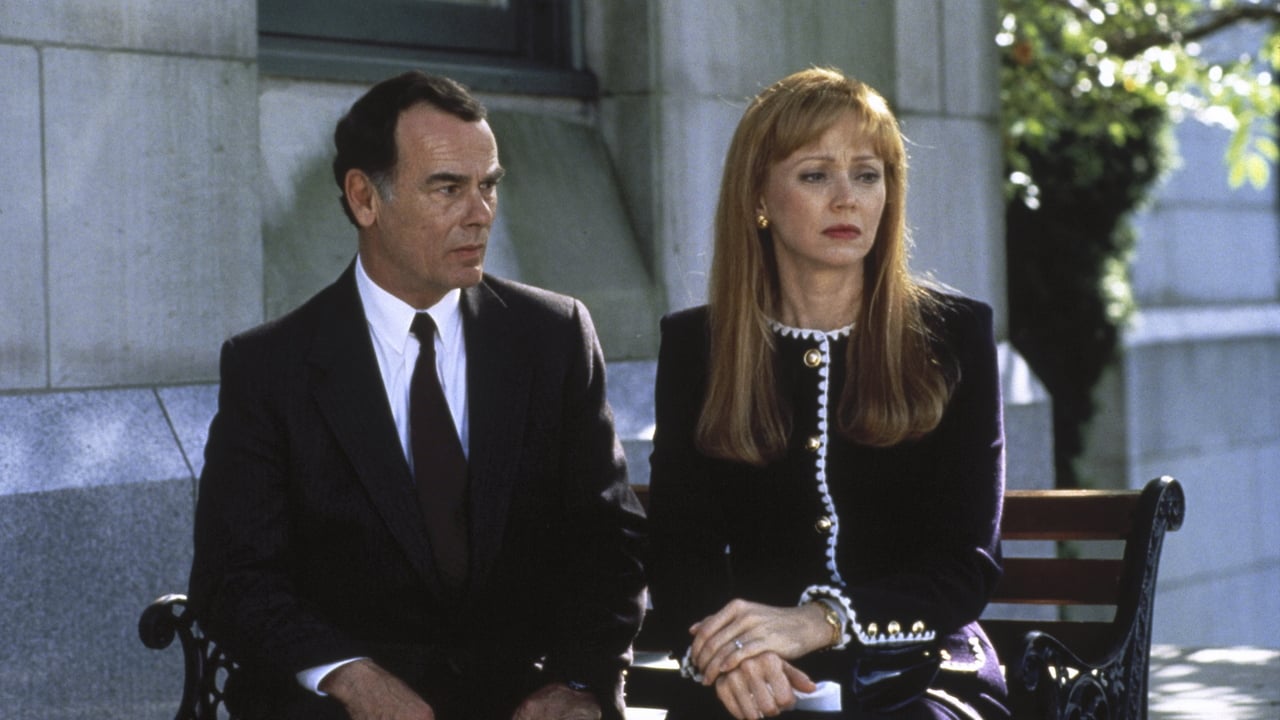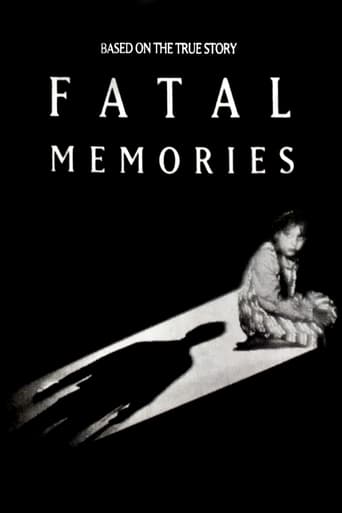

Tied for the best movie I have ever seen
... View MoreToo much about the plot just didn't add up, the writing was bad, some of the scenes were cringey and awkward,
... View MoreJust intense enough to provide a much-needed diversion, just lightweight enough to make you forget about it soon after it’s over. It’s not exactly “good,” per se, but it does what it sets out to do in terms of putting us on edge, which makes it … successful?
... View MoreThe movie's not perfect, but it sticks the landing of its message. It was engaging - thrilling at times - and I personally thought it was a great time.
... View Moreabout repressed memory. As another reviewer mentioned, Eileen Franklin may have recalled some moments that were not 100% true, but she did witness something horrible, and was certainly abused.Dean Stockwell is a detective who helps her prosecute her father, for something that occurred 20 years prior. While I was never a huge fan of Shelley Long, she is believable as the victim of abuse, and does quite well in this role, portraying the character of Eileen as a confused and victimized adult. The court scenes are thankfully not overdone, and Helen Shaver is very good as the prosecuting attorney.If you like this film you may also like "Voices Within:The Lives of Truddi Chase" another story in which Long portrays an emotionally disturbed woman with multiple personalities.
... View MoreShelley Long is a delight to watch, with that oddly appealing Midwestern freshness, and Helen Shaver is reliable, as always. Neither of them can salvage this movie. It's just plain awful. It's based on a true story, also available in a fat true-crime paperback, "Once Upon a Memory," mainly dealing with the "recovered memory" of Eileen Franklin after 20 years of amnesia, of witnessing her father, a thorough-going no good drunken bum, rape and murder Eileen's 8-year-old friend on a road near Foster City, California. He'd been abusing his two daughters for years. The case raises a host of interesting questions. Eileen's "memory" comes to her as a shock in her late 20s, two decades after the murder. At the urging of her husband, who could probably foresee the TV movie, she contacts the police. They track down her father, now living in humble circumstances in Sacramento, and arrest him, convict him, and send him to the slams with a life sentence. The movie never touches on the questions it raises in the viewer's mind. It presents the story through the eyes of poor Eileen who, throughout, is shown as victimized and filled with anguish and conflict. How can she bring herself to testify to this horrible incident in open court? Can she send her father away for life, and alienate her siblings? It never asks questions like "when is a memory not a memory"? It doesn't bring up the fact that Eileen's story changed to accommodate itself to the facts as she became aware of them from talking to others and generally researching her case. The errors in her original memory were gradually corrected. (Initially she "remembered" the sun behind her father's head as he lifted the rock to smash little Suzie's head. When it was pointed out to her that at that time of day, the sun couldn't have been positioned as she claimed, the sun simply changed position. Initially she described her father's silhouette as having rainbow-like bars radiating from it. When a classic psychedelic poster of Bob Dylan with bars around his head was discovered tacked to her bedroom wall, the rainbow disappeared from her "memory.") I don't doubt the real Eileen Franklin's sincerity. In interviews she has seemed as puzzled as anyone else and responds to doubtful queries with a by-now well-practiced stock answer: "If these things didn't happen, then where do these memories come from"? Of course, no one knows, any more than they did in Salem in 1693. The movie doesn't mention that part of her "memory" was recovered while she was in a hypnotic trance, which always helps. As a psychologist I once hypnotized a client who described in the minutest detail how he heard about the Japanese attack on Pearl Harbor. He was only a few years old and coming downstairs to breakfast in his Pennsylvania home that morning. Only the "memory" revealed itself as a fabrication to please the therapist, beginning with the fact that it was early afternoon Pennsylvania-time. This is a genuinely bad film. Eileen ruins her father, who is described as a "pervert" because a search of his room turns up some pornography, and embarrasses everyone, while her friends pet her and cosset her. Poor me. Her early career in prostitution is brushed over as a cliched attempt to exercise some control over her hapless life. This movie was shot in 1991. It was probably the last gasp of the recovered memory hysteria. I wonder how many other innocent lives were ruined, how many perverts like Mr. Franklin wound up with 30-year-sentences, how many preschools raided and closed, how many Satanists finally put away, and all because we don't want to be "a culture that doesn't trust our children." Well, I for one wouldn't stake my life on their telling the truth all the time. Or adults either, for that matter. The main problem with the film is that it isn't Eileen Franklin who should be pitied. It's just about anyone who came in contact with her.
... View MoreLots of TV movies don't work because of bad acting and bad plots. But this one works, the actors are excellent (Shelly Long, Helen Shaver etc.) The story works also it isn't just something that was made in a few minutes but it was thought out and is quite good.
... View More